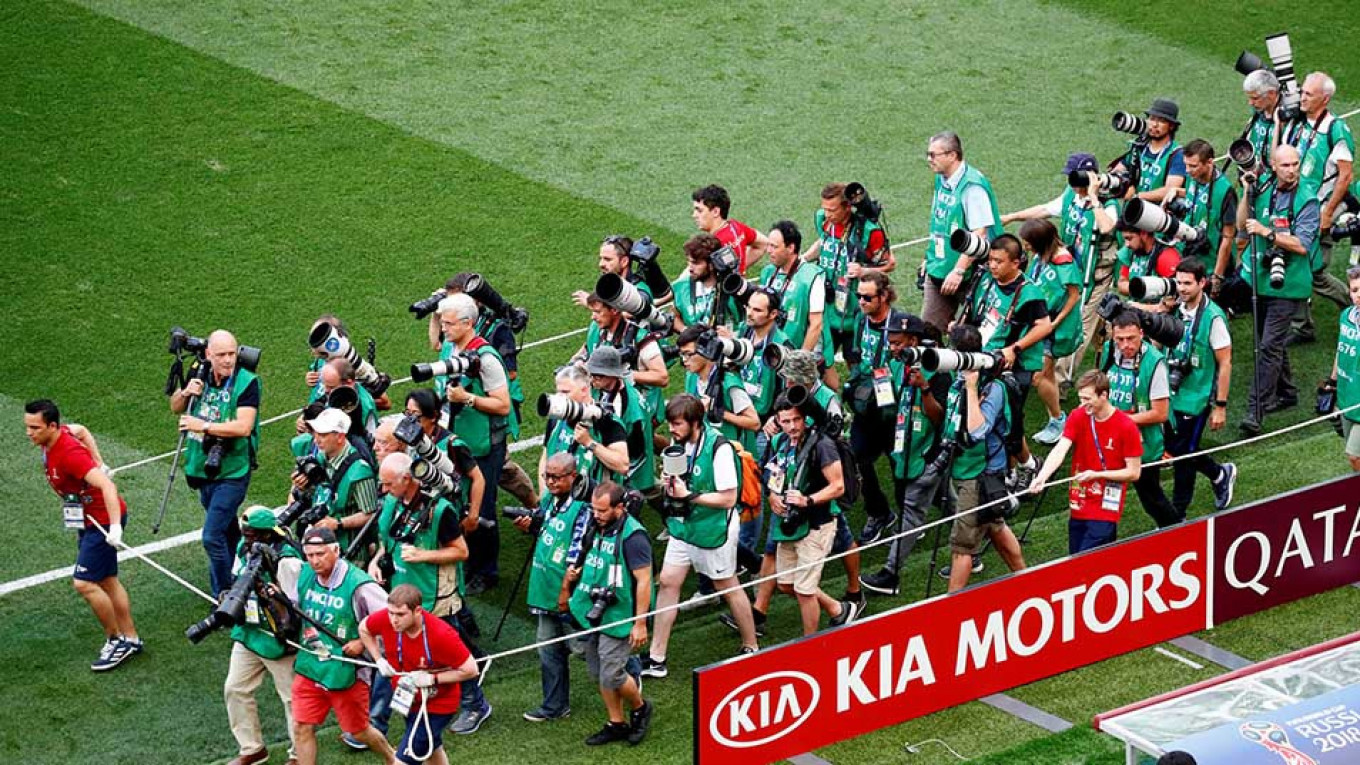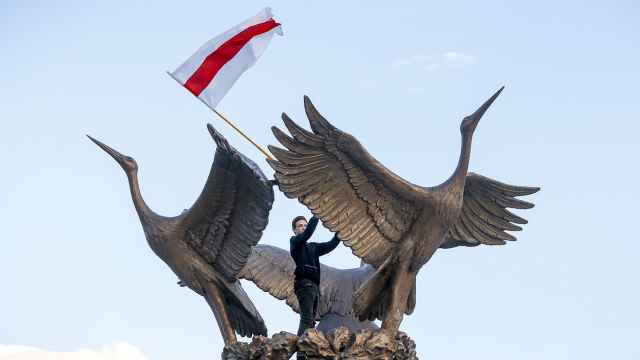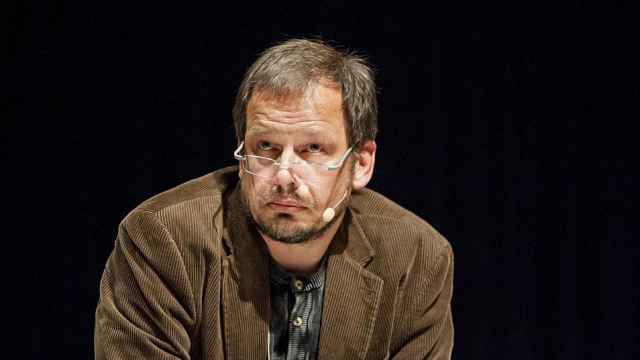I am working on an article at the moment about allegations that an opposition figure in a World Cup host city was set up by the authorities, beaten by security service officers and then thrown in jail as revenge for his investigations into high-level corruption.
The details of the case are shocking, even by Russia’s standards, but I am worried there is one thing missing from my story — I have not mentioned that the city is quite pleasant, in parts, in the summertime, and that it has some great restaurants and cafés. Oh, and a really lovely park.
After all, the failure to include such details in articles about Russia seems to be the — perhaps only — major complaint among many foreign football fans visiting Moscow and other World Cup host cities for the first time. As in: “It’s nicer here than we thought it would be. Western journalists must have been lying to us all these years.” Or words to those effect.
Let’s break this down.
First off, it is true that Western — OK — British media outlets went entirely overboard with their bloodcurdling tales of muscled, tattooed Russian football hooligans who were reportedly smacking their lips in anticipation of feasting on the bone marrow of English fans foolhardy enough to follow their team to the World Cup.
But aside from the fact that this was a narrative being pushed mainly by non-Russia-based journalists, lurid reports of hooligan violence were not — and are not — the only reason why the 2018 World Cup’s host nation has suffered from such an image problem in recent years.
It is true, of course, that — for most people anyway — life in Russia is not one unrelenting cycle of doom and misery. But it is the very nature of news reporting to dwell on tensions, disputes, abuses and allegations. And Russia provides plenty of opportunities for such reporting, from the high-level corruption that even the Kremlin has admitted is a major problem to accusations of torture by police and other security services, not to mention a growing crackdown on dissent.
Yes, reporters should try to offset this barrage of bad news with some positive stories, but there are, to be blunt, only so many articles you can write about the stunning transformation of Gorky Park. Or the rapidly improving quality of some Russian cheeses. Or Russia's excellent museums and galleries (which I have not heard too many football fans talk about, by the way).
Even Grozny, the capital of Chechnya, has a nice pizzeria or two. (My favorite, if it is still open, is on Putin Avenue.) But would you rather reporters wrote about the opportunity to tuck into Italian food, or human rights abuses?
What is it to be — articles on the reported mass torture of gay men by Chechen security forces, or a detailed examination of the quality of the mozzarella on pizza toppings?
We could, of course, write sentences like: “Russian security forces in St. Petersburg, where there is a vibrant café culture and some really nice streets for midnight strolls, have been accused of breaking the teeth of an anti-fascist activist in custody.” But, well, that would just be silly.
Eagle-eyed readers will have noticed that it is not only Western journalists in Russia who focus on bad news. Reports on mass shootings, human rights abuses, etc. in the United States, for example, also tend to avoid caveats referencing, say, the wonders of Central Park.
But since New York, London and Paris are more familiar to Western readers than Moscow, Samara or Kaliningrad, no one is under the impression that gun violence, acid attacks or Islamic terrorism are their sole defining characteristics. Indeed, Russian reports on Western countries also generally focus on negative stories rather than, for instance, London’s art house cinemas, Indian restaurants and excellent second-hand vinyl shops.
Some advice: If you really want to know what life is like in a city you have never been to, pick up a travel guide book or two. After all, that is what they are for. And then read a newspaper to find out about all the other unpleasant stuff. Anyway, that’s enough from me. I’m off to the park to relax. (Did I mention, by the way, that Moscow has some really nice ones?)
Marc Bennets is a journalist and author of “Football Dynamo: Modern Russia and the People’s Games.” The views expressed in opinion pieces do not necessarily reflect the position of The Moscow Times.
A Message from The Moscow Times:
Dear readers,
We are facing unprecedented challenges. Russia's Prosecutor General's Office has designated The Moscow Times as an "undesirable" organization, criminalizing our work and putting our staff at risk of prosecution. This follows our earlier unjust labeling as a "foreign agent."
These actions are direct attempts to silence independent journalism in Russia. The authorities claim our work "discredits the decisions of the Russian leadership." We see things differently: we strive to provide accurate, unbiased reporting on Russia.
We, the journalists of The Moscow Times, refuse to be silenced. But to continue our work, we need your help.
Your support, no matter how small, makes a world of difference. If you can, please support us monthly starting from just $2. It's quick to set up, and every contribution makes a significant impact.
By supporting The Moscow Times, you're defending open, independent journalism in the face of repression. Thank you for standing with us.
Remind me later.







